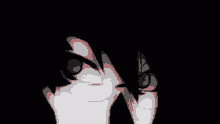I know kids can learn things way faster so I've always been confused if it's really practical or not. i don't want to ask cringelibs because ifeel like i'm going to get generic "you can do it if you try real real hard!" responses
the main thing is not to let yourself get frustrated when its harder or doesn't go as well as you'd hoped. That's not as big of a deal when you're a kid because kids suck at everything so they're used to it, but as adults we tend to stick more and more to things we've become proficient in, and hate ourselves when something we think should be easy is hard. It's just capitalism brain, allow yourself to fail (A LOT) and enjoy the process!
On the other hand, adults (in theory) have longer attention spans, the ability to self-motivate more, and the ability to delay gratification more so than kids, so it's not all bad.
I started learning a third language in my late 20s and it was much less tedious than going to school as a child.
tell that to my brain when it does a blitzkreig on my self worth when I mess stuff up :C
Counter the Blitzkrieg of self doubt with the Deep Battle of self esteem, Comrade.
Conquering ADHD by repeatedly issuing Order 227 to my executive function.
I try but I legit have fucked up bad before so its just tough to trust myself when in the past doing that was bad, y'know?
I'm not sure if it's helpful to you, but I learned to laugh at my own failures and it made failing a lot less miserable.
When I was learning Japanese I would pick out my own worst mistakes and show my friends and tutors and have a good laugh.
I know it's not for everyone, and you should find your own way to make failure better, but reframing failure as a hilarious fuck up helped me cope.
I absolutely do laugh at my failures, that's definitely good advice imo. I've just as of yet not found a way to know for sure when I'm failing and when I'm not which is why I find it hard to accept that I'm doing well if I am
Longer attention span means nothing when you work 12-14 hours per day :agony-4horsemen:
Yeah. Just takes a shitload of practice and patience. Kids do have more neuroplasticity or whatever, but that doesn't mean adults don't have it. You can still learn art, music, languages, writing, woodworking, whatever, in your old age. I mean look at how retirees stereotypically take up various arts and crafts in their sixties or seventies, and end up being quite good at them after a few years.
The key thing about developing new skills is to spend a lot of time doing it, consistently. Eventually you'll get better at it. And, like, take classes and watch tutorials and hang out in forums. Don't try to learn something from scratch without anyone helping you. I learned leatherworking all by myself and it sucked, I developed a lot of bad habits and missed out on a lot of processes that simplify what you're doing and make it faster, easier, and with better results.
If you want to do some figure work, I like this site: https://line-of-action.com/
I really like line of action, but if you're looking for some weirder figure reference, this site can be useful too: https://www.characterdesigns.com/
Zlib has some copies and let me get on the computer and I’ll send you a couple of reference books + recs.
Yes you can learn how to do art at a much older age. The challenge for me has been using my precious and scarce resource: time. And managing that as effectively as possible.
I think the idea of kids being able to learn shit just comes from (relatively wealthy) kids having a shitload of time to learn shit. So yes, I will give the cringelib response, that you can do anything if you have the will as well as the resources to do it. You do have to make sure you study the right way though, like with a teacher who can tell you when you’re fucking up. Practicing a lot is pointless if it isn’t getting you anywhere. You have to practice the right way.
I mean neuroplasticity is a thing especially for language acquisition but it really is just time and repetition
Language acquisition being easier for kids is not just neuroplasticity. Human brain does some real crazy shit when you're young learning language that never happens again. If you don't learn to recognize and pronounce certain sounds your brain will never be able to parse them from human speech. If you aren't exposed to enough language during this period you'll never learn to use it as others do, even with intensive training later. It's a very different and specific process from learning other things, so not a good barometer for how well we learn in childhood vs. adulthood.
If you don’t learn to recognize and pronounce certain sounds your brain will never be able to parse them from human speech
I remember as a music major there was like a very high chance that any Chinese or Vietnamese speakers (or other tonal language, but those are the most common) had perfect pitch vs other people due to having to pick up on intonation from an early age
but those are the two things i have tons of but don't want to use :cri:
you can increase your neuroplasticity by having novel experiences and learning, ironically enough
Neuroplasticity is helpful, but adults can actually pay attention for longer than 15 mins or try at something hard for a long time.
You can do it if you try really hard. It will also take a super long time. It's a skill like any other.
I think having people do art around you when you are young can condition you into it. So if you take an interest in that sort of thing, you will already have some experience with it. I think of them as literal gifts that people have given to me, by helping nourish the interest I have in the arts.
You can of course, do this for yourself!
It requires practice and being able to analyze your approach, which is harder to do when you're by yourself and older, as time and space become harder to get
It's very possible but it's gonna feel like you're terrible at it for a long time. Kids are shameless so they're not self-conscious about their art despite it being truly awful a lot of the time. You look at a school bulletin board or a parent's refrigerator and you'll see a lot of absolute dogshit art but people refuse to tell the children that.
Yes. The degree to which young people learn skills faster is greatly exaggerated. The biggest factor for kids is the amount of time they devote to learning things. Just google some artists who started when they were really old and you'll see.
I attended art school in my late 20s, alongside other students who were right out of high school. One thing I learned from four years in art school, is that "doing art well" is a very broad thing that includes a variety of skills. Every one of my classmates had a few "tricks" they seemed to be innately talented at, and other things they needed to work on. Like, someone might be really good at rendering light and shadow, but terrible at capturing gestures and lines of action. Or they'll be great at detailed anatomical drawing, but terrible at creating an appealing composition for a storyboard.
So, the frustrating news is, no matter how good you get, there will always be some aspect of your art where you'll notice areas for improvement. The good news is, as an adult, you can learn how to analyze your own and other people's art and learn the different principles that come into play to make a good piece.
I don't know how you "learn" best, but someone in this thread suggested DrawABox, and I think that's a really good resource. I wouldn't want it to be the only way to approach drawing, but if you go through a few of the lessons and drills on that site, you're bound to come out the other side with a few new skills. I was doing some of the DrawABox exercises in my sketchbook while I was in art class, and to my surprise, some of my classmates looked at the exercises and were amazed at how cool they looked. It surprised me, because I thought of these classmates as being far more talented than me (I think I'm better at drawing than the average person on the street, but below average for an art school graduate).
I guess my big piece of advice for learning art as an adult would be to have a network of fellow art learners to share your experiences with. This might be in formal classes in person, or it might mean sharing art with other people online. If you're an adult, this means you may have to get used to the idea of learning from people younger than you, if you're not already accustomed to that. Admittedly, this is a piece of advice I'm terrible at following myself, and I tend to be a bit of an insecure hermit.
One more thing: I think an underrated advantage that adults tend to have over children and teenagers is the ability to understand the scope of a project, plan out that project, and follow that plan. This can be valuable for any artistic project, from a single painting, to a graphic novel. Probably the most common hurdle in art school was that some very talented students just weren't organized enough to hand their assignments in on time. There were students who were far better at drawing than I was, but got worse grades because they were either chronically late to hand things in, or because they would hand in work that, while impressive, didn't really indicate that they understood the assignment. I already had a previous university degree, so I would look at assignment descriptions, say "Oh, I see, the point of the assignment is to learn X" and I would consistently do pretty well, with each completed assignment being something I could add to my portfolio. My ability to manage a project also meant that I was able to complete my 4th-year project on time (a 6-minute film I animated pretty much single-handedly).
In my opinion, the real key to making art is getting over one's own perceptions of what 'good' is, and pouring yourself into whatever it is you want to do. Especially with visual arts, just abandon all conventional artistic knowledge and just put some color on something. As long as you can resist that sensation that your work must resemble something else that you've seen someone else make that you really liked, your art will be good









